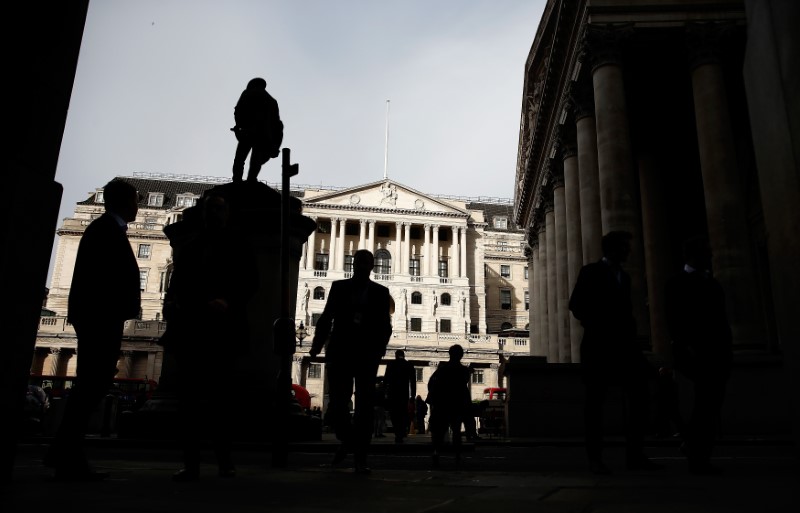LONDON (Reuters) - Central banks should see economies as constantly changing, unpredictable "kaleidoscopes" of factors and not just as a "rocking horse" that automatically returns to the status quo, the Bank of England's chief economist said on Thursday.
Andrew Haldane - who has a track record of using colorful metaphors in his speeches - did not address the outlook for Britain's economy in a lecture he was due to give at the University of Cambridge.
Instead, he urged a greater use of alternative approaches to modeling economies that would explain better how financial crises and other unpredictable events happen.
"The global financial crisis is an opportunity to rebalance those scales, to take uncertainty and disequilibrium seriously, to make the heterodox orthodox," Haldane said.
George Shackle, a British economist active in the decades after World War Two, described the economy as "a kaleidoscope, a collision of colors subject to on-going, rapid and radical change," Haldane said.
"Many of our existing techniques for modeling and measuring the economy invoke a rather different metaphor, with the economy a rather colorless, inanimate rocking horse," Haldane added.
Rather than focus on economic models that relied on a single, average consumer or firm, economists should try to use "agent-based models" with lots of individual agents which better explained how the economy behaved in a financial crisis.
Economists had used this approach as far back as the 1960s to study racial segregation in the United States' housing market, but these models were now easier to apply to other problems due to cheaper computing power.
The BoE had success in analyzing the housing market with agent-based models involving tenants, landlords and owner-occupiers, and had taken a similar approach to looking at the corporate bond and commercial property market, Haldane said.
"One topical policy issue is whether constraints might be imposed on some funds to forestall investor redemptions in the face of falling prices and performance," Haldane said.
Several commercial property funds prevented investors from removing their money during volatile trading in British assets in the days after voters decided to leave the European Union in June.

According to one model, cited by Haldane, requiring investors to give a month's notice to withdraw their money, rather than one day, would reduce swings in asset prices by a factor of five.